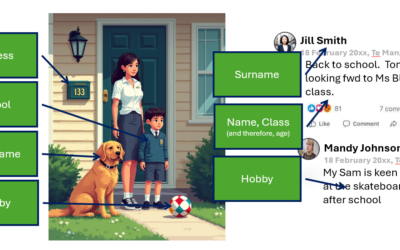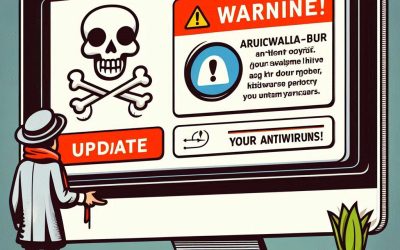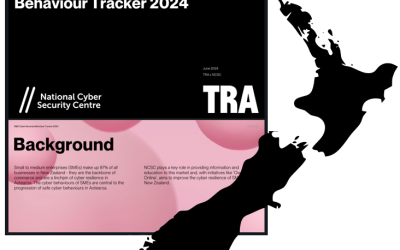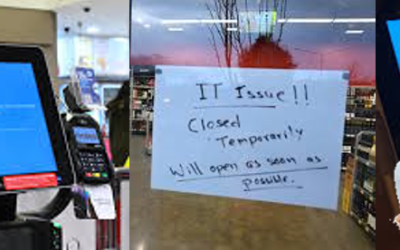The Trillion dollar industry
At the time of writing, the Waikato DHB cyber-attack is ongoing. The government is refusing to pay the ransom as a point of principle, and it looks like every possible tool at their disposal is being used to try to recover the situation.
Should they just pay the ransom? Or should the government go further and make it illegal to pay ransoms in New Zealand? That’s the question that Minister Kris Faafoi is having to assess at the moment. DHB attack: Why Justice Minister Kris Faafoi won’t make it illegal to pay a cyber-ransom – NZ Herald
Cyber crime is big business. We’ve called it organised crime in previous articles and we’re happy to stick with that. These organisations recruit the best and brightest out of the top universities, and give them both the latest tools and time to wreak havoc. Their recruits are paid astronomical sums to work for them, overcoming any moral objections with immorally large pay checks. These paychecks are funded by the proceeds of previous hacks. Every time they are paid, their war chest is strengthened. For example, we recently saw the Colonial Pipeline in the eastern US get hacked for 75 bitcoins (just under US$4M) which went to a criminal group called ‘Darkside”.



So, will cutting off payments stop their attacks by removing the incentive?
These criminals are smart and highly motivated. They seem to have no conscience but plenty of greed. Waikato is not only the hospital being brought down – there was a huge wave of hospital attacks in the US in October, just a few months ago – Several hospitals targeted in new wave of ransomware attacks – CNNPolitics.
I don’t know how Waikato DHB got infected, but the rumour is that it was from phishing attacks onto machines that weren’t fully patched up to date. We don’t know if that is true, but it is a common attack vector. Once a hacker gets into a system, they often hold back and try to dig further looking for more vulnerabilities they can exploit. The more damage they can cause, the more ransom they can demand, so they will often use one vulnerability to find the next, and so on until they finally have enough to bring the house down.
Security is all about layers. There is NO way to prevent attacks, and it is impossible to guarantee that any system is invulnerable. We saw that with the recent Hafnium attack where a vulnerability was exploited before patches were available to block it. But the more layers of security, the harder you make it, and you reduce the scope of any harm.
Today, even if you have the best backups and can recover the system, the hackers then threaten to release the data you hold to media or competitors. In the case of the Waikato DHB, it is being reported that personal data is being released to media by the hackers to increase pressure, even as they fail to stand their systems up.
As to paying the ransom, I suspect your perspective changes when your business, your job or livelihood is threatened. Not an easy decision and hopefully one we can avoid by being paranoid.
The best solution we can recommend is to check your cyber insurance and to apply the best security you can reasonably afford, which should be more than you had last year. Expect it to be more again next year as new tools and new threats emerge. Consider managed security solutions like our KARE Plans.
We don’t know where this will end, or if it will end, but let’s hope so. It is such a drain on our resources and holds us back from investing in tools that make us more productive.
That day when a Kinetics client DIDN’T get hacked.
We’ve just wrapped up a security investigation for one of our amazing clients. All of our clients are amazing, but as you read this story, you’ll see why we’re especially proud of this client. We’ve anonymised it out of respect, although this story reflects really...
The Hidden Dangers of Oversharing Family Photos on Social Media
In today's online age, sharing family photos on social media has become a common way to stay connected with loved ones and document precious moments. But beware of ‘Oversharing’ There is a huge danger that this seemingly harmless activity can expose you and your...
TEN things the government says you need to know about your cyber-security defence
Regular readers will be a little tired of hearing us talk about cyber-risk and the threat of hackers. You'll forgive us a little because we see the impact when events happen, and we spend our days protecting our clients to keep them safe. But we're just a tiny cog...
What do Microsoft’s Upcoming 2025 Security Enhancements for Windows mean for you?
In response to the significant CrowdStrike meltdown last summer, which exposed some critical vulnerabilities in the Windows platform, Microsoft is set to introduce a series of further security updates in 2025. The meltdown, caused by a flawed update, led to widespread...
The Implications of Using ChatGPT (free gen-AI tools): An instructive Case Study from Australia
Recent news from Australia In a recent investigation, the privacy regulator in the state of Victoria has imposed a ban on the use of ChatGPT within a government department. This case highlights the dual nature of Generative AI (GenAI) tools, which offer significant...
Oh no, the worst has happened! Now what?
When we talk to people about the different risks that their organisation might face, one of the events that has the highest likelihood, and would have the biggest impact, is a significant cyber-event. The worst-case scenario would be a ransomware event, where the bad...
What is Malvertising?
Malvertising is appearing more frequently on search engines. More people are starting to experience frustration with search engines, partly due to occasional inaccuracies in AI-driven overlays and an excess of advertisements. Another emerging concern is “malvertising”...
Check out the NZ 2024 SME Cyber Behaviour Tracker
As cyber threats proliferate, small businesses find themselves not just in the crosshairs but also facing the daunting financial repercussions of a breach. There is an urgent need for robust cyber security measures. With the staggering average cost of $173,000 per...
Webinar Replay – Lessons from the recent “Largest Global IT outage in history”
Free Webinar Replay - What lessons can we learn from the recent outage?What lessons can we learn from the recent outage? How can we prevent these situations from happening to us? Join Kinetics CTO Bill Lunam and ConnectWsie's Leon Friend as they unpack what happened,...
Urgent Security Advisory (from Microsoft)
We have been alerted to an issue with some Microsoft Office products. The vulnerability is reported to be actively exploited and we expect Microsoft will expedite the release of fixes. Zero-day means that this is an immediate high risk and we are advised that it is...










